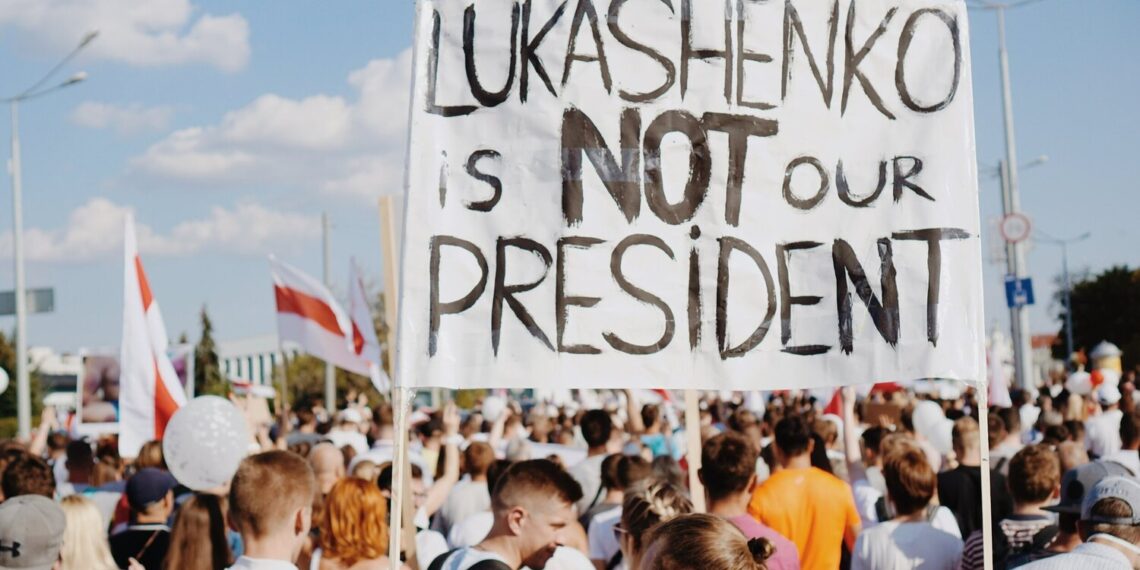[ad_1]

In May, Belarus passed anti-media legislation that seeks to curb the voice of journalists and restrict dissent against the Belarus government. The new law prohibits the media from reporting on unauthorized mass gatherings and publishing opinion polls without having their results approved by the Belarus government. This legislation also gives the Belarus government the power to shut down media organizations, which previously required a court order. Human Rights Organizations have starkly criticized the law and the proceeding shutdowns of independent media as the bill aims to suppress the dissent against the Belarus government.
The recent legislation has been enacted in the wake of the 2020 protests against the Belarus government headed by President Alexander Lukashenko, who has been holding power since Belarus seceded from the Soviet Union in 1994. The Organisation for Security and Co-operation in Europe (OECD) has not recognized a single election in Belarus as free and fair since 1995. Lukashenko has been accused of election rigging on multiple occasions. Despite Lukashenko’s mismanagement of COVID-19 and various other criticisms, he allegedly secured 80 percent of the vote in the 2020 elections. When thousands of citizens took to the streets to protest the rigging and demand free and fair elections, the police responded with a brutal crackdown. About 7000 political dissenters were thrown in jail in August 2020. As recently as July 2021, the law has been used to crack down on independent media outlets in the country. The new media law furthers this trend of suppressing dissenting voices in Belarus.
The new anti-media legislation is a flagrant breach of the freedom of press enshrined in Belarus’s Constitution, which states that citizens have the right to freedom of speech and expression (Article 34) and the right to receive, store and disseminate information on the activities of public and state bodies (Article 35). By infringing on these rights through the prohibition of reporting on unauthorized mass gatherings and of publishing opinion polls, the recent legislation unconstitutionally attempts to stifle dissenting voices.
Freedom of the press is also promulgated in various international treaties and declarations, including in Article 19 of the Universal Declaration of Human Rights and in Article 19 of the International Covenant on Civil and Political Rights (“ICCPR”). These articles state that every person has the right to freedom of speech and expression, which encompasses freedom of the press. General Comment 10 adopted by the Human Rights Committee interprets this right as an obligation upon states not to put controls on media, as such acts would interfere with the right of individuals to express themselves. Belarus’ new law directly contradicts this interpretation by giving the government a blank check to close media organizations.
Curtailment of Journalistic Freedom: Mass Gatherings and Opinion Polls
The new statute prohibiting the reporting of unauthorized mass gathering and the publishing of opinion polls is directed at dissenters speaking out against Lukashenko’s government who are protesting the rigging of elections. This goes against the Resolution 33/2 of the Human Rights Committee which states that the laws legislated by nations, especially those concerning public order, counter-terrorism and national security, should comply with freedom of press and state obligations to journalists under international law.
It is pertinent to note that these resolutions are not legally binding on states, although they have persuasive value. The recent media legislation also contravenes the decision of the Human Rights Committee in the case of Koktish v. Belarus, where the Belarus government rejected the accreditation of a journalist seeking to report from within the House of Representatives. The Human Rights Committee stated that this is a breach of Article 19 of ICCPR (right to freedom and expression) and stressed that there was no cause to subdue journalistic freedom for political interests.
Shutting Down Media Organizations
Another notable feature of the new media law in Belarus is that it empowers the Information Ministry to shut down any media organization without a court order. Now, the government can arbitrarily take action by closing media outlets protesting against the authoritarianism of Lukashenko’s regime to curb their dissent. This conflicts with the Human Rights Committee’s call for states to protect journalists and refrain from taking action towards a seizure or closure of media organizations, as well as various global resolutions that protect journalistic freedom. For example, shutting down media outlets directly goes against the resolution adopted by the UN General Assembly Third Committee condemning the forced closure of media outlets and calling upon states to frame laws to ensure the protection of journalists. Whereas Frank La Rue, the former U.N. Special Rapporteur of freedom of speech and expression noted in 2012 that states should not use national laws to prevent the dissemination of that information which goes against the government, Belarus’ new law has been used precisely in that manner. General Comment 34 of the Human Right Committee calls upon states to protect journalists disseminating information of public interest. Belarus’ new media law clearly overlooks these international obligations and seeks to undermine the freedom of the press.
[ad_2]




